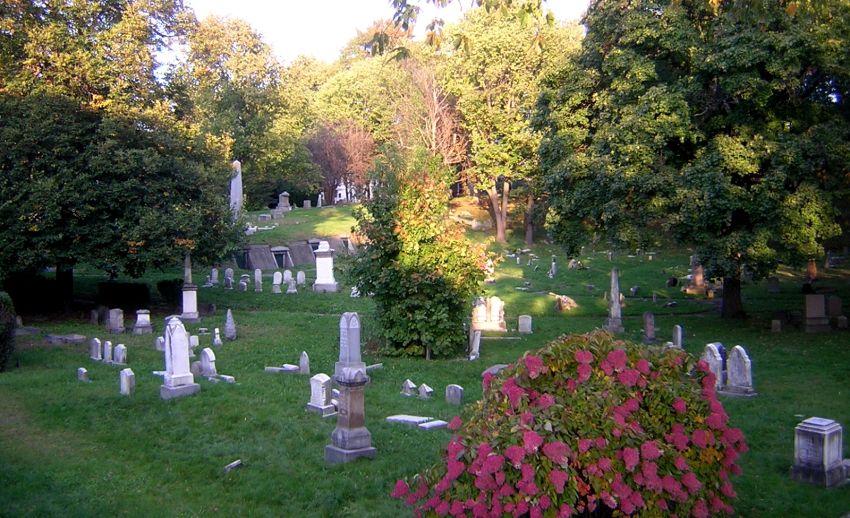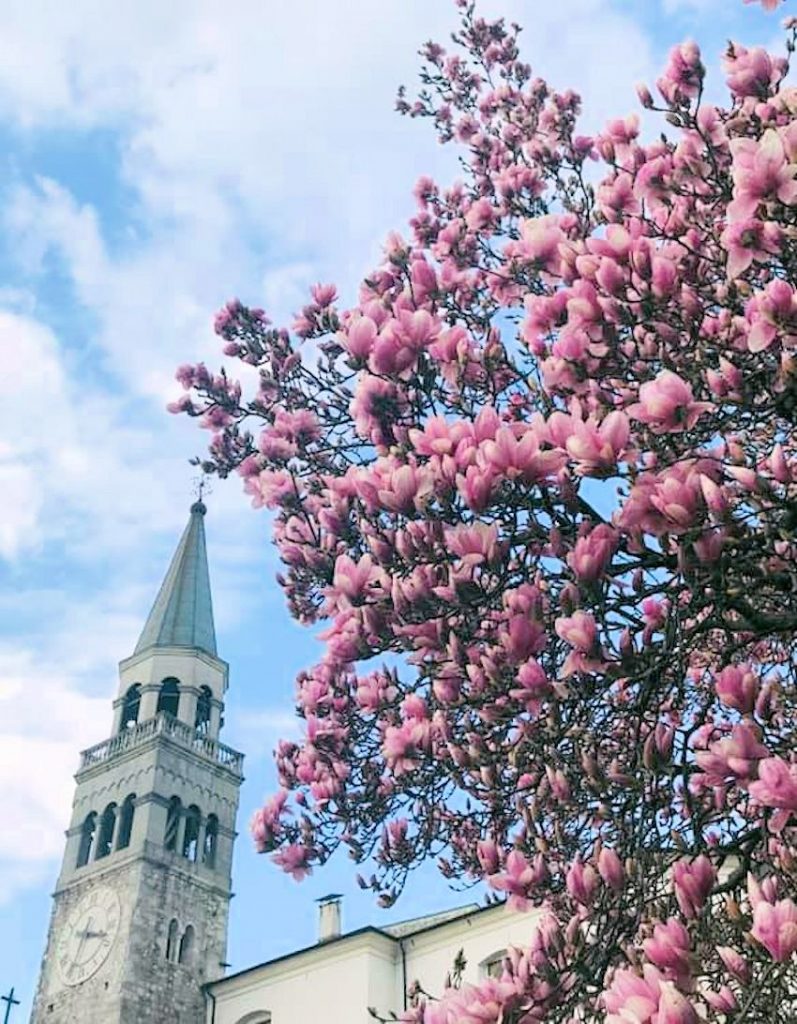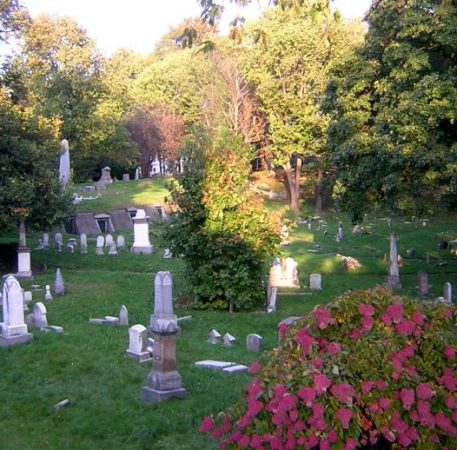
In life I do various things, in death I will do less. Sculptures, paintings, installations, books and other useless stuff: my poor contribution to entropy.
Andros
What the dead had no speech for, when living, They can tell you, being dead: the communication Of the dead is tongued with fire beyond the language of the living.
T.S. Eliot, Four Quartets
Death
Because I could not stop for Death,
He kindly stopped for me;
The carriage held but just ourselves
And Immortality.
We slowly drove, he knew no haste,
And I had put away
My labor, and my leisure too,
For his civility.
We passed the school, where children strove
At recess, in the ring;
We passed the fields of gazing grain,
We passed the setting sun.
Or rather, he passed us;
The dews grew quivering and chill,
For only gossamer my gown,
My tippet only tulle.
We paused before a house that seemed
A swelling of the ground;
The roof was scarcely visible,
The cornice but a mound.
Since then ‘tis centuries, and yet each
Feels shorter than the day
I first surmised the horses’ heads
Were toward eternity.
Emily Dickinson
A friend of mine, an eclectic artist, a misunderstood genius has just died, in solitude. He committed suicide, and following his will they cremated him. No funeral, no procession, no religious ceremonies. His ashes left for Rome already on Friday, where a brother lives. Born in Naples 53 years ago, he had then moved to Rome and later to Milan, where I had met him. Then 10 years ago he sold his laboratory shop and bought and renewed an old tiny farmhouse in the small town of Candia Lomellina in the province of Pavia, where he went on producing his non-commercial art.
I hadn’t seen him since then, due to serious family problems, but we had always kept in touch through the web and the telephone, while collaborating at the same time with our reciprocal websites. His house, partly renovated, seemed like a museum, full of his works and there, in that lonely and mysterious place, he concluded his earthly journey.
Now it will certainly be sold, its laboratories dismantled, the whole story of ten years of artistic and intellectual work thrown to the wind. Nonetheless, his writings and the images of his sculptures will remain, since he published everything. His name was and will remain Andros, for him I imagined a spring funeral, just like the one described by Lawerence in his White Peacock. Just to commemorate it literally in the best way.
A greeting by Carl William Brown.
“The Spring Funeral” is an excerpt taken from” The White Peacock”, the first novel of D.H Lawrence. The novel was written in 1906 but finally published in 1911 after three revisions. It is narrated in the first person by a character named Cyril Beardsall. The spring funeral takes place in the chapter 2 “The shadow in spring”. This particular section, is a pastoral elegy, that raises the issues proposed in Emotive Theory by I.A. Richards, such as valorization of nature, synasthesia, human sensibility and organicity. The text is a remarkable handling of the language by Lawrence, who shows us the picture of life and death, and the way it keeps going on in a cycle. The spring funeral is a great excerpt to see through the emotive theory given by I.A. Richards. It connects with the idea of the theorist showing that the emotional consciousness, and emotional response is created in the minds of the reader by a work of Art and Literature.

When reading about the spring funeral, the reader is immersed in nature in a way that is sometimes tragic, sometimes ecstatic. This is one of the great charms of the excerpt from the book. Moments of life, of supreme harmony in spring time gives rise to ecstasy, and at the same time there’s a tragic side to it, as the funeral procession is going on. The Annable the game keeper has just died, and the narrator is seeing the spectrum of how nature is participating in the procession and how aloof somethings are. In the light of both happiness and sadness, we find ‘synasthesia’ and IA Richards view that discordant feelings and emotions can be harmonized only in Art and Literature. For him, Art and Literature also is a therapeutic tool.
In the description of spring funeral, the writer like a painter, depicts the early spring season with the vibration of the non-human world, the birds like larks, thrush, lapwings and the black-legged lamb. All the animals seem to be intoxicated by the magnificent morning and feel the thrill. The natural scenes of hazels, sallow trees and pale wind-flowers portray the gloom. In Emotive theory by I.A. Richards, he gives emphasis on the nature and its effects in the life of people. I.A. Richards believes that industrialization and modernity brings dehumanization, but nature still breeds emotions in human beings.
The lapwings, unlike other birds in the springtime, they lament and take part in the wailing and crying of the people in procession. They seem to be engaged at an emotional level to the surrounding. All the other birds and the lamb retreat into silence and they are also aware of the human feelings. The narrator and the people carrying the white coffin also show the respect and condolence towards the dead. The nature’s participation in joyous or sad moments is known as pathetic fallacy. In regards to I.A. Richards, the human sensibility, or an acute perception of or responsiveness toward something, such as the emotions of another is the most important aspect.
There’s an inter-relatedness, coherence, and connection between the natural objects, the animals and the human beings in the spring funeral. The picture gives us the clue that all these entities can’t be separated. The eco-system or the “organicity” of nature and humans is inseparable. Lawrence’s description of the springtime, and the events glorifies the bio-centric view against the existing notion of anthropocentrism. I.A. Richards says that the Art and Literature has the organization of fullness of life and it creates the impulses in the readers.

The Spring Funeral
They decided to bury him in our churchyard at Greymede under the beeches; the widow would have it so, and nothing might be denied her in her state.
It was a magnificent morning in early spring when I watched among the trees to see the procession come down the hillside. The upper air was woven with the music of the larks, and my whole world thrilled with the conception of summer. The young pale wind-flowers had arisen by the wood-gale, and under the hazels, when perchance the hot sun pushed his way, new little suns dawned, and blazed with real light. There was a certain thrill and quickening everywhere, as a woman must feel when she has conceived. A sallow tree in a favoured spot looked like a pale gold cloud of summer dawn; nearer it had poised a golden, fairy busby on every twig, and was voiced with a hum of bees, like any sacred golden bush, uttering its gladness in the thrilling murmur of bees, and in warm scent. Birds called and flashed on every hand; they made off exultant with streaming strands of grass, or wisps of fleece, plunging into the dark spaces of the wood, and out again into the blue.
A lad moved across the field from the farm below with a dog trotting behind him,—a dog, no, a fussy, black-legged lamb trotting along on its toes, with its tail swinging behind. They were going to the mothers on the common, who moved like little grey clouds among the dark grose.
I cannot help forgetting, and sharing the spink’s triumph, when he flashes past with a fleece from a bramble bush. It will cover the bedded moss, it will weave among the soft red cow-hair beautifully. It is a prize, it is an ecstasy to have captured it at the right moment, and the nest is nearly ready.
Ah, but the thrush is scornful, ringing out his voice from the hedge! He sets his breast against the mud, and models it warm for the turquoise eggs—blue, blue, bluest of eggs, which cluster so close and round against the breast, which round up beneath the breast, nestling content. You should see the bright ecstasy in the eyes of a nesting thrush, because of the rounded caress of the eggs against her breast!
What a hurry the jenny wren makes – hoping I shall not see her dart into the low bush. I have a delight in watching them against their shy little wills. But they have all risen with a rush of wings, and are gone, the birds. The air is brushed with agitation. There is no lark in the sky, not one; the heaven is clear of wings or twinkling dot -.
Till the heralds come – till the heralds wave like shadows in the bright air, crying, lamenting, fretting forever. Rising and falling and circling round and round, the slow-waving peewits cry and complain, and lift their broad wings in sorrow. They stoop suddenly to the ground, the lapwings, then in another throb of anguish and protest, they swing up again, offering a glistening white breast to the sunlight, to deny it in black shadow, then a glisten of green, and all the time crying and crying in despair.
The pheasants are frightened into cover, they run and dart through the hedge. The cold cock must fly in his haste, spread himself on his streaming plumes, and sail into the wood’s security.
There is a cry in answer to the peewits, echoing louder and stronger the lamentation of the lapwings, a wail which hushes the birds. The men come over the brow of the hill, slowly, with the old squire walking tall and straight in front; six bowed men bearing the coffin on their shoulders, treading heavily and cautiously, under the great weight of the glistening white coffin; six men following behind, ill at ease, waiting their turn for the burden. You can see the red handkerchiefs knotted round their throats, and their shirt-fronts blue and white between the open waistcoats. The coffin is of new unpolished wood, gleaming and glistening in the sunlight; the men who carry it remember all their lives after the smell of new, warm elm-wood.
from the White Peacock by D.H. Lawrence

